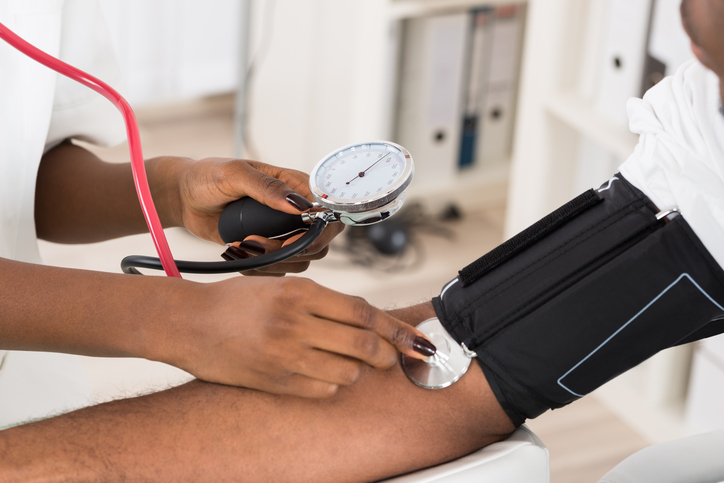
For decades, doctors had nothing more sophisticated than a stress test to identify potential heart problems. Not anymore. Cardiologists now use advanced imaging and blood tests that give a much more accurate assessment of heart attack risk.
These tests are the best ways to tell who is in danger, because they can catch cardiovascular disease 20 to 30 years before it gets severe enough to cause a heart attack or stroke. They are available at most major medical centers and hospitals. If your doctor doesn't request them for you, demand the ones that are recommended for your age group and risk category.
1) Carotid Intimal Medial Thickness Test
How It Works: This "ultrasound of the neck" takes a picture of the left and right carotid arteries, which supply blood to your head and brain. After putting a gel on your neck, a technician glides an ultrasound transducer over your carotids to measure the thickness of the arteries' lining.
Duration: 15 minutes
Why It's Heart Smart: Studies show a link between the abnormal thickness of the carotid lining and coronary artery disease. This test can detect even the earliest stages before blood flow is blocked. Because it's not an x-ray, it's also helpful for women who are or may be pregnant.
What the Results Mean: You'll get two numbers: the thickness of your carotid lining (normal is less than 1.06 mm) and your "arterial age," an estimate of how that thickness compares to others in your age group. If your arteries are more than 8 years "older" than you are, your doctor can tailor a treatment to reduce your risk.
RELATED: 7 Very Early Signs You’ll Have A Heart Attack
2) High-Sensitivity C-Reactive Protein Test
How It Works: A blood test measures CRP, a protein in your blood that's a strong indicator of inflammation throughout your body.
Cost: $8
Duration: 5 minutes
Why It's Heart Smart: Cholesterol plaque injures blood vessels, triggering inflammation and raising CRP levels in your blood. That's dangerous because people with high levels of CRP may be up to 4 times more likely to suffer a heart attack or stroke. A high CRP is most dangerous if you also have another risk factor: a waist circumference of more than 35 inches, indicating the presence of belly fat.
What the Results Mean: If your score is under 1.0 mg per liter, your risk of developing heart disease is low. A score between 1.0 and 3.0 mg/l equals average risk. Above 3.0 mg/l, you're at high risk. It's possible to have high CRP without heart disease, though, because infections and injuries can also trigger a spike in levels.
3) Advanced Lipid Profile and Lipoprotein(a) Test
How It Works: Unlike the traditional cholesterol blood test, which measures total cholesterol, HDL, LDL, and triglycerides, the advanced test also looks at particle size. This is important because some particles are big and fluffy, so they tend to bounce off artery walls as they travel through the body. Others are small and dense, meaning they can penetrate the artery lining and form clumps of plaque. (Think beach balls versus bullets.) The Lp(a) blood test analyzes a specific type of cholesterol that can triple heart risk.
Cost: $19
Duration: 5 minutes
Why It’s Heart Smart: Sizing up your particles gives a clearer picture of heart risk than the conventional test: Having a lot of large particles cuts risk, while small ones raise it. The more Lp(a) you have, the worse it is, too--it makes LDL particles extra sticky, so they cling to the lining of blood vessels, causing plaque and clots.
Get It If: You have a family history of heart disease.
What the Results Mean: You do not want more than 15% of your particles to be the small, dense type. For Lp(a), levels above 30 mg/dl put you at increased risk.
RELATED: 15 Stress Management Techniques That Will Change Your Life
4) A1C Blood Glucose Test
How It Works: A blood test indicates your average level of blood sugar over the prior 3 months. Unlike other glucose tests that require fasting or drinking a sugary beverage, this test requires neither.
Cost: $50
Duration: 5 minutes
Why It's Heart Smart: This is the simplest way to detect your future risk of diabetes. This disease puts you at a 5 times higher risk of developing heart disease--yet 5.7 million Americans have undiagnosed diabetes (on top of the 17.9 million who are diagnosed) because they haven't had their blood sugar checked.
Get It if: You're 45 or older--or earlier if you're overweight and have one or more diabetes risk factors, such as family history, high triglycerides, or low HDL.
What the Results Mean: An A1C level between 4.5 and 6% is normal, between 6 and 6.4% indicates prediabetes, and 6.5% or higher on two separate tests means you have diabetes.









